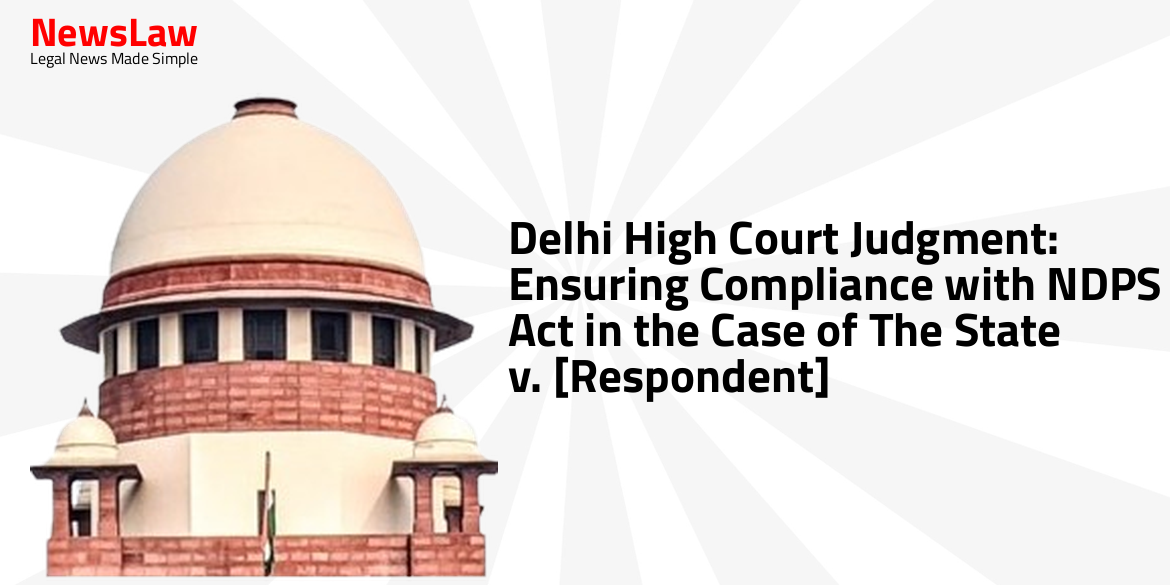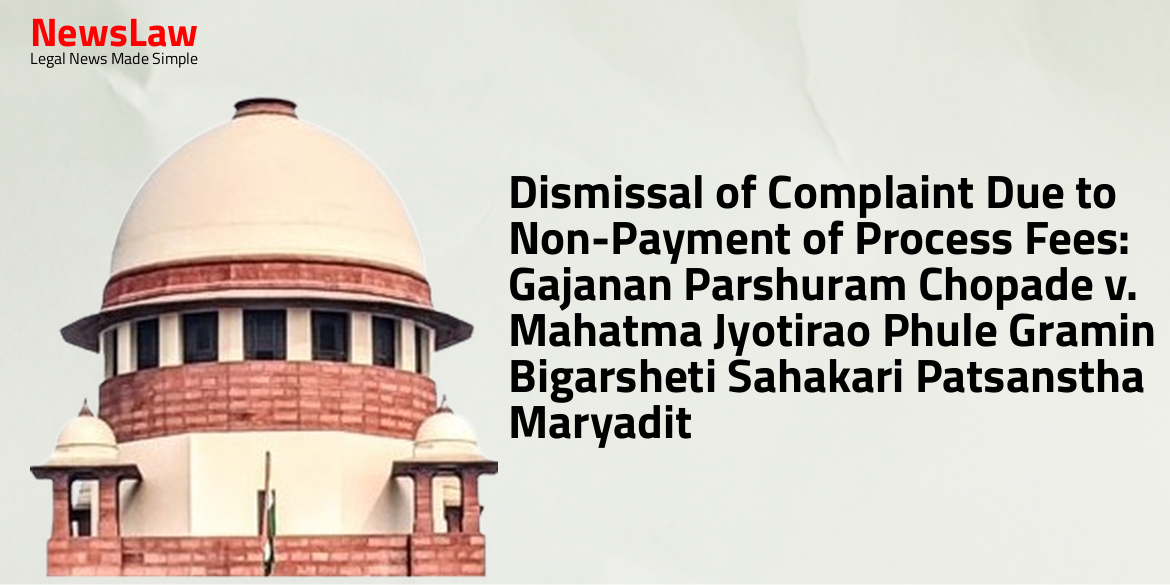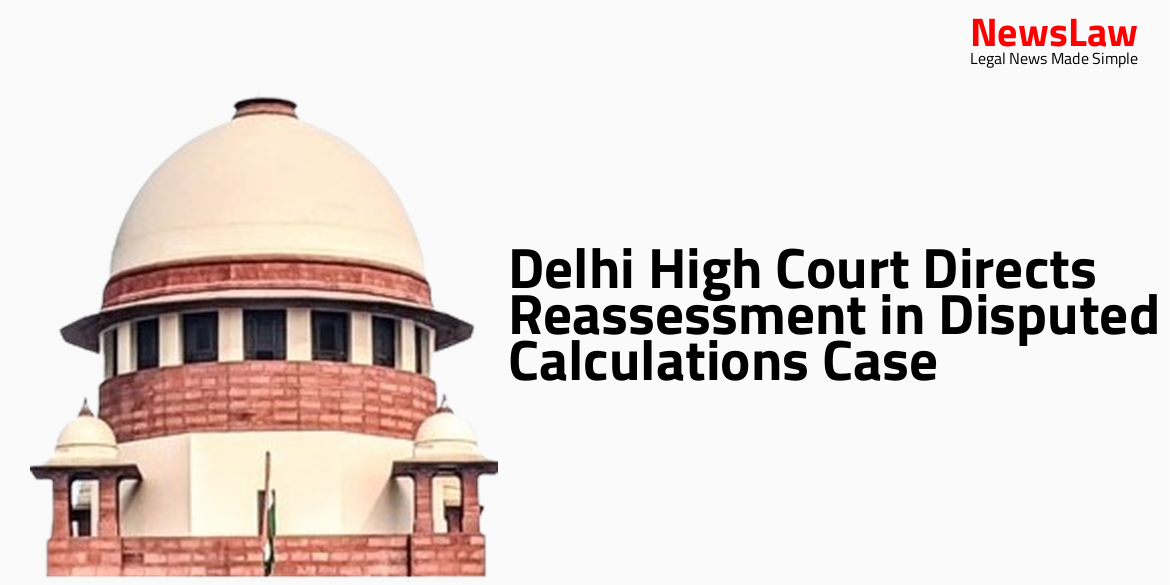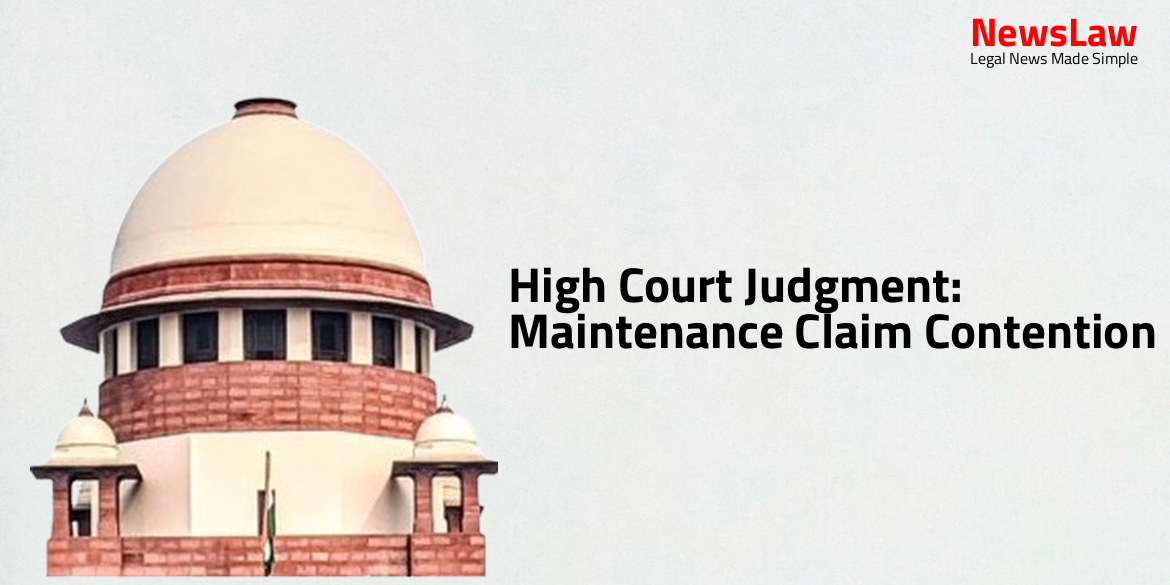In a significant ruling by the Delhi High Court in the case of The State v. [Respondent], the importance of adherence to the NDPS Act has been highlighted. The judgment sheds light on the necessity of following proper procedures, specifically Section 52A, in the seizure of contraband. Stay tuned to learn more about this crucial legal decision.
Arguments
- The FSL report proved that the seized samples were Narcotics/Psychotropic Substances.
- Contraband of a commercial quantity was seized from the respondent.
- The Special Judge directed the respondent to be released on bail, noting compliance with Section 37 of the NDPS Act despite non-compliance with Section 52A of the NDPS Act.
- Samples were drawn at the site, proven through the seizure memo.
- Non-compliance with Section 52A and the duration of incarceration cannot justify the respondent’s release on bail.
- Case law including Biswajit Mondal v. The State of West Bengal and Dheeraj Kumar Shukla v. State of U.P. highlight the significance of trial delay in bail decisions for preserving the accused’s liberty under Article 21 of the Constitution of India.
- The respondent has been in custody since 20.08.2019, totaling nearly 4 years and 8 months.
- The lengthy period of custody warrants attention and consideration.
- The duration of custody is a significant factor for the Special Judge to have noted.
Analysis
- Seizure of contraband must be forwarded to the officer-in-charge of the police station or the empowered officer for further action.
- The officer must approach the Magistrate for permission to draw representative samples in the Magistrate’s presence.
- Drawing of samples must be supervised by the Magistrate and certified by the Magistrate as correct.
- Taking samples at the time of seizure is not mandated by the NDPS Act.
- Samples drawn and certified by the Magistrate are considered primary evidence for trial.
- Failure to draw samples in conformity with Section 52A creates doubt on the substance being contraband.
- Drawing samples in the presence of a gazetted officer instead of the Magistrate does not comply with the Act.
- Correct procedure under Section 52A of the NDPS Act must be followed, including preparing an inventory and certification by the Magistrate.
- Seized contraband and samples were not drawn in the presence of the Magistrate.
- Inventory of the seized contraband was not certified by the Magistrate.
- Seized contraband and samples would not be valid pieces of primary evidence in the trial.
- Non-compliance with Section 52A of the NDPS Act is relevant.
- Available substance with the petitioner does not negate non-compliance with Section 52A.
- Lack of material to prove Magistrate certification of inventory or list of samples.
- Upon seizure of contraband, it must be forwarded to the nearest police station or empowered officer under Section 53.
- The officer must prepare an inventory and make an application to the Magistrate.
- The Magistrate will certify the correctness of the inventory and photographs, and draw representative samples in their presence.
- The Magistrate must allow the application as soon as possible under sub-section (3) of Section 52-A.
- Non-compliance with Section 52A of the NDPS Act is sufficient for bail under Section 37.
- No fault found in the costs imposed.
- The intactness and true nature of the seized substance must be proven during trial.
Case Title: NARCOTIC CONTROL BUREAU Vs. NIMATULLAH MANGAL & ANR. (2024:DHC:4145)
Case Number: CRL.M.C.-3924/2024



